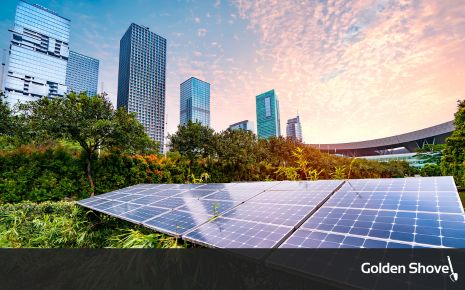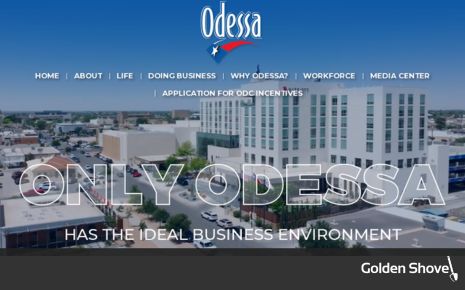From Vision to Action: How Economic Developers Can Support Green Initiatives

29 Jan 2024
News
In an era of increasing environmental awareness and the imperative to combat climate change, economic developers find themselves at a crucial crossroads. The traditional pursuit of economic growth and prosperity must now align with sustainable, green initiatives.
The Imperative of Green Initiatives
Green initiatives encompass a wide range of actions and policies aimed at reducing environmental impact, conserving natural resources, and fostering sustainable development. These initiatives include, but are not limited to, renewable energy projects, energy-efficient infrastructure, waste reduction programs, sustainable transportation, and green building practices.
The need for such initiatives has never been more apparent. Climate change threatens our planet, and the consequences are increasingly visible in the form of extreme weather events, rising sea levels, and ecosystem disruptions. As a result, businesses, communities, and governments worldwide recognize the urgency of transitioning to greener, more sustainable practices.
The Role of Economic Developers
Economic developers play a pivotal role in this transition. Traditionally, their focus has been on attracting new businesses, creating jobs, and boosting local economies. However, the scope of their responsibilities is evolving to encompass a broader, more sustainable vision. Economic developers can now be instrumental in steering communities toward a green future.
Fostering Green Business Growth
One of the most effective ways economic developers can support green initiatives is by actively encouraging the growth of green businesses. These businesses focus on sustainable practices, such as renewable energy production, eco-friendly manufacturing, and environmentally responsible product development. Economic developers can help attract and support these businesses by providing incentives, streamlined permitting processes, and access to resources and networks.
In addition, economic developers can collaborate with local universities and research institutions to foster innovation in green technologies. By creating an ecosystem that nurtures green startups and established companies alike, they can drive economic growth while advancing environmental sustainability.
Green Workforce Development
Another critical aspect of supporting green initiatives is ensuring the workforce is equipped with the skills and knowledge needed to thrive in a sustainable economy. Economic developers can work with educational institutions to design and promote training programs tailored to the needs of green businesses. These programs can cover a range of fields, from renewable energy technologies to sustainable agriculture and environmental management.
By investing in workforce development, economic developers create a skilled labor force attractive to green businesses and can drive local economic growth. It also empowers the local community with the means to participate in the green economy.
Sustainable Infrastructure
Economic developers can also play a vital role in promoting sustainable infrastructure. As cities and regions expand, constructing new buildings and transportation systems offers opportunities to incorporate green technologies and practices. This includes energy-efficient buildings, public transportation networks, and smart urban planning that reduces the carbon footprint.
By collaborating with local governments and stakeholders, economic developers can advocate for policies that encourage sustainable infrastructure development. They can also engage with private sector investors and developers to emphasize the long-term economic and environmental benefits of sustainable projects.
Access to Financing
Many green initiatives require substantial upfront investments, making access to financing a critical consideration. Economic developers can assist green businesses and projects in securing funding through various channels, including public grants, private investments, and partnerships with financial institutions.
They can also help facilitate the creation of green investment funds or venture capital networks dedicated to supporting sustainable ventures. By connecting green entrepreneurs with financial resources, economic developers pave the way for environmentally conscious projects to become a reality.
Public Engagement and Education
Economic developers must engage the community in the transition to green initiatives. Public support is crucial, as it can influence political decisions and create a market for green products and services. Economic developers can organize community events, workshops, and educational campaigns to raise awareness about the benefits of sustainable practices and the potential economic advantages.
Moreover, they can work with local governments to implement policies that promote sustainability at the municipal level, such as recycling programs, energy efficiency initiatives, and green building codes. This helps create a supportive environment for green businesses and initiatives to thrive.
Collaboration and Networking
Economic developers can also facilitate stakeholder collaboration, including businesses, government agencies, nonprofits, and educational institutions. By fostering a network of partners committed to green initiatives, economic developers create a synergistic environment where expertise and resources can be shared.
Additionally, they can connect local green businesses with national and international markets, helping them expand their reach and impact. This global perspective can be invaluable for businesses looking to grow and contribute to the green economy.
Moving Forward
Economic developers are uniquely positioned at the intersection of economic growth and environmental sustainability. As our world grapples with the urgent need for green initiatives, they have the opportunity and responsibility to drive positive change. By fostering green business growth, supporting workforce development, promoting sustainable infrastructure, securing financing, engaging the public, and facilitating collaboration, economic developers can transition from vision to action in support of green initiatives.
The future of our planet depends on our collective efforts to embrace sustainability. Economic developers can be the catalysts that guide communities toward a more prosperous, environmentally responsible future. With their proactive involvement, we can work together to achieve a greener and more sustainable world for current and future generations.
More Topics





